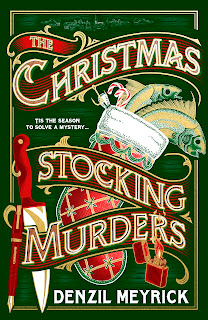It’s
clear that external forces are at work, influencing readers and writers alike.
Take
WWII, for example. The most popular genre was historical fiction, mainly with a
theme depicting our gallant soldiers triumphing against allcomers. This is easy
to understand. There are very few left who can remember the very real horror
the population faced in that conflict. For the first time, this modern war
placed every man, woman, and child on the front line, thoughts of violent death
or invasion never far away. No longer, was war restricted to two lines of men
facing off in a muddy field, ready to slash, slice and trample in the name of
everyone else.
Of
course, the unfortunates who found themselves in the midst of battle have
suffered for centuries. Now though, one’s demise could arrive from a clear,
blue sky. Who can blame those who found peace and reassurance through the pages
of a book?
Fast-forward
to our own era. Yes, since that war, there have been many hard times. I lived
through the ‘three-day week’, when power cuts and food shortages became the
norm in this country. Add to that, the visceral impact of terrorism, threat of
nuclear inhalation, natural disasters, and man’s continued inhumanity to man; well,
that tiny voice of fear refused to disappear. But on the whole, in this country
at least, we’ve enjoyed a prolonged period of peace, relative safety.
Enter,
SARS-CoV-2, better known now as Covid.
Once
again, danger came from that blue, blue sky – any sky, to be accurate. An enemy
we couldn’t see wreaked havoc across the globe, no respecter of borders,
political and military power, race, religion, sex, age or creed. It created
unimagined horror, with too many dying far from the love and embrace of their
families and friends.
I think
the true impact of this disease will take decades to properly understand.
Though there is something we noticed almost immediately: our collective reading
habits changed. We now have the term Romantasy. It might not be in the
dictionary yet, but complex, grand love stories that now take place under the
level gaze of warlocks, witches and dragons, fly off the bookshelves in huge
numbers. In the USA particularly, the love life of cowboys and cowgirls is now
a major literary draw – yeeha!
There can
be no doubt that Covid, the Cost-of-Living Crisis, and wars and rumours of wars
have found those who take to the written word for entertainment rushing for
escapism.
So, how
does this trend affect crime fiction and thrillers?
While
it’s always dangerous to generalise, there appears to be a move to something
much less visceral. The vicarious thrill of consuming murder and mayhem between
the pages of a book, has suddenly become a gentler experience; perhaps replete
with a little humour to ease our passage through a book. The success of Richard
Osman and many, many others bear witness to this. Somehow, the stress and
strain of contemporary life has turned reading to its earliest days, with a
rise in novels that are much closer to the golden age of crime writing, than
they are the slash-and-burn realism of a few years ago.
Yes, these
stories are every bit as compelling, thrilling and unputdownable, but they
offer escapism without sleepless nights. Unless, of course, one is up all night
trying to work out devilishly clever plot twists and turns.
My
Inspector Grasby Mysteries, feature a hapless Yorkshire detective, back in the
1950s. It’s no coincidence that the indomitable Frank and boss Superintendent
Arthur Juggers find themselves in a time just after that other great tumult,
the Second World War. It’s almost as though it’s all gone full-circle – well,
as far as I’m concerned, anyway.
Then, we
have the magic of Christmas. It’s a time for tall tales told in the dark and
cold. I’ve often wondered why that is. But if you close your eyes really
tightly, it’s not too hard to imagine a tiny group of people, huddled round a
flickering flame, telling tall tales to banish the ice-age to the back of the
mind.
Some
things never change.
The Christmas Stocking Murders by
Denzil Meyrick (Transworld|) Out Now
A case shrouded in secrets. It’s
just before Christmas, 1953. Grasby and Juggers are investigating a puzzling
murder in the remote village of Uthley’s Bay. A fisherman has been found dead
on the beach, with a stocking wound tight round his throat. A festive mystery
for one and all. Hundreds of pairs of stockings, in neat cellophane bags, soon
wash up on the shore. A blizzard cuts off Grasby and Juggers from help, and the
local innkeeper is murdered. Any remaining Christmas cheer goes up in smoke as
the villagers refuse to talk, leaving the two detectives chasing false leads in
the snow. A winter wonderland with no escape. To make matters worse, Grasby
can’t stop thinking about stockings. Why does everyone seem to be enjoying
strangely high standards of hosiery, even beneath their oilskins? Who is the
sinister bespectacled man snooping around their hotel? And how can they solve
the murder when everyone in the village is a suspect?
More information about Denzil
Meyrick and his books can be found on his website.
You can also follow him on X @ Lochlomonden
and on Facebook.

.jpg)

No comments:
Post a Comment